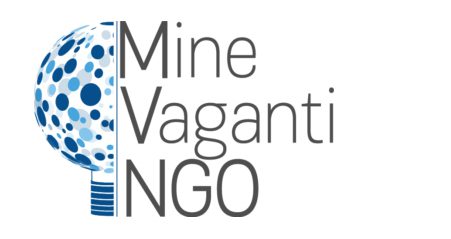‘’Developing VET Entrepreneurial Green Mindset and skills for Small-Business Development’’ - GSMESKILL
GSMESKILL project will aim to reinforce the links between Nigeria, Kenya and South Africa to the Programme VET system and its labour market so as to better align VET to local labour market opportunities, to increase capacities of VET providers and teachers especially in the fields of management, governance, inclusion, quality assurance, innovation; and internationalization, to improve the level of competences, skills and employability potential of VET learners, improve the knowledge, technical, managerial and pedagogical skills of VET teachers and trainers and support the exposure of staff and policy makers bridging the labour market and VET closer. The project will achieve the above mentioned objectives through the following activities: an evidence-based research and mapping of skills and good practices, development of innovative vocational teaching methodologies and toolbox for VET Entrepreneurial Mindset and skills for Small Business Development, elaboration of an GSMESKILL ELearning Platform & Inclusive National Policy Recommendations development.
Duration : 36 Months
Project Reference: 101091883
EU Grant: 399.178,00 EUR
Programme: Erasmus+
Action Type: Capacity Building in field of VET
Project Partners:
1. EDUFORMA SRL, Italy (Coordinator )
2. FUNDACIJA ZA IZBOLJSANJE ZAPOSLITVENIH MOZNOSTI PRIZMA, USTANOVA FOUNDATION FOR IMPROVEMENT OF EMPLOYMENT POSIBILITIES PRIZMA AN INSTITUTION, Slovenia (Partner )
3. SIMEIO EVROPAIKIS GNOSIS AMKE, (Greece (Partner )
4. NGO NEST BERLIN EV Germany (Partner )
5. Center For Digital Skills Acquisition For Women and Youths In Africa ,Nigeria (Partner )
6. Egunec Education Support Foundation ,Nigeria (Partner )
7. Yadaversity Education Company ,Nigeria (Partner )
8. KENYA INSTITUTE OF BUSINESS TRAINING ,Kenya (Partner )
9. Southern Africa Development, Research and Training Institute ,South Africa (Partner )
Project TOPICs:
Entrepreneurship
Capacity of VET providers
Curriculum design and development
TARGET GROUPs:
The target groups of the project are:
· Participating organisations,
· associated partners,
· TVET organizations,
· providers and teachers in Sub-saharan countries, l
· earners and students of TVET programmes including learners with fewer opportunities (low-income community women and youth)
· young people who want to become entrepreneurs, private sector (staff, managers) and policy makers.
PROJECT’S OBJECTIVES
The European Union (EU) has increasingly recognized the importance of entrepreneurship and SMEs, not only to improve competitiveness, and therefore, contribute to economic growth, but also as the main source of job creation and fundamental factor for social cohesion. Besides being small, the TVET sector in most Sub-Saharan countries is characterized by a significant lack of practical relevance and responsiveness to labor market needs, insufficient infrastructure and equipment and extremely low throughputs. Entrepreneurship education should be of interest to all in view of the inherent benefits of entrepreneurship – job creation, poverty alleviation, improvement in the living standard, creation of goods/services for the satisfaction of increasing population and bridging the gap between technology and satisfaction of human needs. Promoting entrepreneurship development through a properly coordinated education would assist in changing this scenario.
Specific Objectives of the Project are the following ;
· To reinforce the links between the third countries not associated with the Programme VET system and its labor market so as to better align VET to local labor market opportunities
· Increasing the capacities of VET providers and teachers, especially in the fields of management, governance, inclusion, quality assurance, innovation; and internationalization
· Improving the level of competencies, skills, and Employability Potential f VET learners
· improving the knowledge technical, managerial, and pedagogical skills of VET teachers and trainers
developing networks and exchanges of good practice between VET providers in third countries and European countries
APPROACH / METHODOLOGY
The project will follow the PM² methodology,
Initiating :Literature review was carried out by studying reports and Objectives and deliverables were designed in accordance ith the budget
Planning:In the project work plan, the schedule for the tasks involved is defined, estimates for the necessary resources and development of the details of the project plans
Executing : All the project deliverables will be divided in 5 work packages and each WP will be led by one or two organizations. Implementation of quality assurance control processes and dissemination strategy will run through the whole project. For all deliverables and activities, the approach will be participatory and inclusive.
Closing : A Final Conference will be organized to present the lessons learned and plan the sustainability of the project. A report will document lessons learned and best practices for future projects.
Project ACTIVITIES
The 36-month work plan for the GSMESKILL project utilizes agile development procedures to deliver quick and demonstrable results and to innovate while utilizing the consortium’s sophisticated expertise and assets. The project is divided into five (5) work packages (WPs) that encompass all of the project’s research and deployment activities, beginning with WP2’s elaboration and structuring of good practices that will serve as the project’s baselines for development and solution validation. Technical activities include the creation of novel vocational teaching approaches and a toolkit for VET Entrepreneurial Mindset and Small Business Development (WP3). GSMESKILL will first consolidate the overall implementations into a robust e-learning platform and then deploy it into three (3) TVET trainings for Nigeria, Kenya and South Africa, over which GSMESKILL will be validated (feedback to/from WP2). To enable structured recommendations from stakeholders to the end products, an iterative/agile approach will build a feedback loop from the deployment/validation activities (WP3&4) back to the technical Tasks. The second round of deployment and technical validations will then be fed by an updated version of all components. Project management, quality assurance (WP1), and dissemination and exploitation (WP5) are horizontal activities that will complement and support the project.
For more information visit





